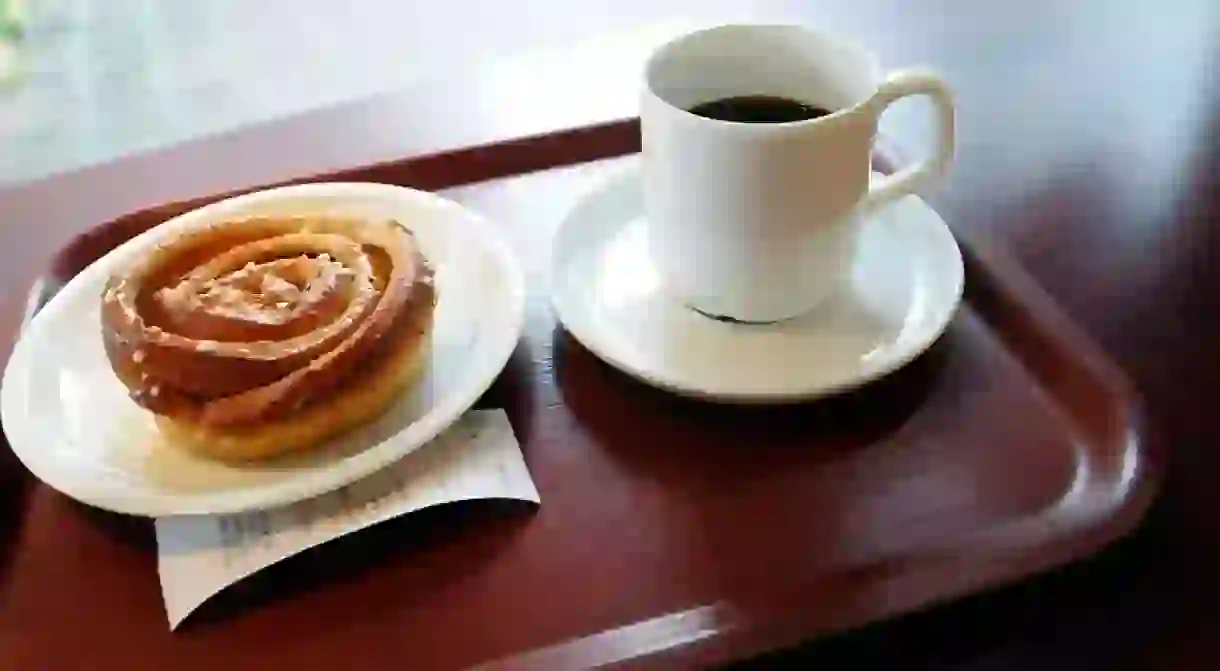Fika: A Swedish Cultural Way of Life

In recent years, there has been a new fascination with the Scandinavian way of doing things, whether it’s articles about the Danish concept of hygge, features about Sweden’s own version of hygge – mysig – or discussions about new trends, like plogging (picking up litter and jogging), which have emanated from Northern Europe. In Sweden, though, one of the most important daily activities is the ritual of having a fika, which has surprisingly not had quite the same press. A fika is something that every Swede does and is something that, while simple to do, has a number of interesting ideas and quirks attached to it.
What is a fika?
It’s simple in that the basic tenet of ‘having a fika’ can be summed up as ‘having a coffee with a sweet treat’. Swedes are excellent at crafting all kinds of delicious cakes, pastries and biscuits that pair perfectly with a cup of coffee – or tea, if you are not a fan of coffee.
Swedes have one of the highest per capita levels of coffee consumption in the world, so it’s no surprise that fikas can happen on more than one occasion per day.

They do not have to be formally arranged gatherings (although they can be); rather, they are often impromptu, quick coffee breaks with friends or colleagues.
However, in many offices in Sweden, there are designated fika times, where one department or set of people are responsible for going out and getting food to accompany the coffee. You will often see people’s work calendars with a fika at the same time every week.
Where did it all start?
The word fika was first coined in the 19th century. In modern Swedish, ‘kaffe’ means coffee, but in those days the word was ‘kaffi’. Fika came from reversing the syllables and slightly altering the word. In very old Swedish, it also used to mean ‘to strive’, so some have argued that the idea of ‘having a fika’ comes from taking a break from striving for something.

Whether that is true or not, the rest-and-relaxation aspect of a fika is clearly central. Swedes will often refer to a ‘fika paus’ or a fika break and will eagerly countdown until they can reasonably take one.
Fika: a natural equaliser
It is seen as a real equaliser in offices, with it being perfectly natural for people in different positions and at different levels of the corporate ladder to bond over a fika break.
At times, having a fika might mean meeting at a specific place, a treasured coffee house or a ‘konditori’, the Swedish version of a patisserie. But it could just as easily be held at home. It is a real cultural meeting point, a time to bond with friends, a time to talk about your work and your personal life – as well as a time to enjoy and to relax.

It is a passion that is shared by the young and old, the rich and poor, as well as by people born in Sweden and those who have come to settle there. It is something that is easy to participate in if you are visiting and something that is a simple way to experience a slice of Swedish culture.
Where to try one
There are several fantastic places in each major city to try a ‘traditional fika’, i.e. a cup of great coffee and a sweet treat, with a cinnamon bun being the most common accompaniment. However, there are many others to choose from.
In Stockholm, both Vete-katten and Kaffekoppen are fantastic, as is Ma Baker, which is in the suburb of Karrtorp, and is well worth taking the metro to if you want to experience a real neighbourhood Stockholm spot.

Brogyllen and Junggrens are great choices in Gothenburg, and in Malmo, you have to visit both Konditori Katarina and Wallins. You can even have fika in London now, as it has its own fika cafe.
More than coffee
Fika really is a cultural touchstone of Sweden. It is a tradition that is about more than just having a coffee. It means catching up with friends, sharing the joy of a little break and enjoying the chance to appreciate a sweet treat.













